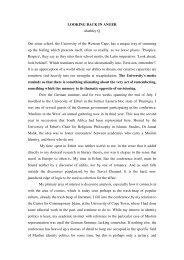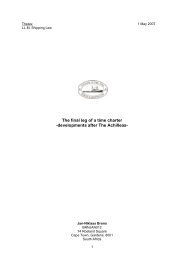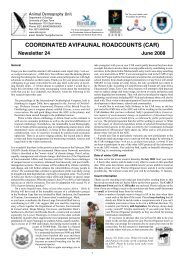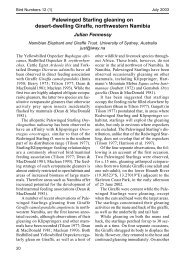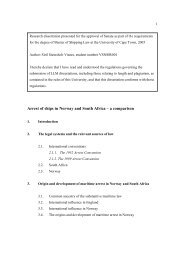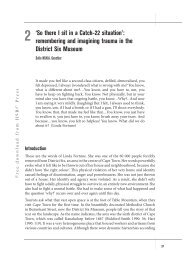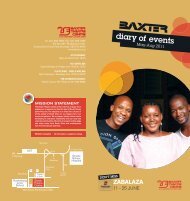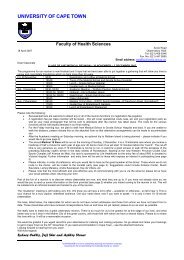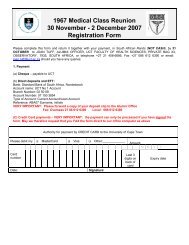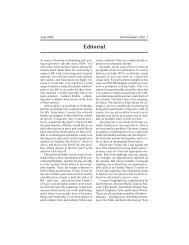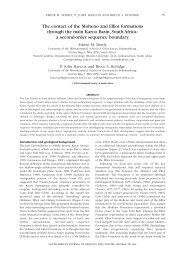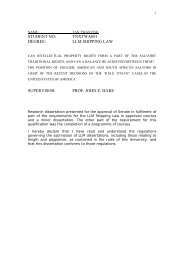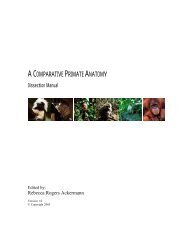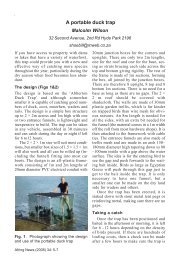insanity.pdf
insanity.pdf
insanity.pdf
Create successful ePaper yourself
Turn your PDF publications into a flip-book with our unique Google optimized e-Paper software.
Africa 13<br />
those who have been found not guilty under the <strong>insanity</strong> plea (Reed and<br />
Seago, 1999).<br />
Automatism : controversies and challenges<br />
While English courts have clear-cut guidelines as to the interpretation of<br />
sane automatism, American courts have failed to develop any clarity as to<br />
their interpretations. Schopp (1995), in reflecting on the stance in American<br />
jurisdictions, says that some courts have viewed automatism as a variation of<br />
the <strong>insanity</strong> plea while others have expressly rejected this notion and<br />
considered it a separate defence. Finkel (1988) refers to the sane automatism<br />
defence as an ‘atypical’ <strong>insanity</strong> defence because the jury rules on whether<br />
there was an act and does not concern itself with the existence of disease of<br />
mind or the issue of intent. Thus the mental state of the accused is not central<br />
to ascertaining responsibility. Finkel (1988) argues that psychiatric testimony<br />
provides ‘the room, shadings, and interpretative leeway’ (p. 291) which<br />
enables lawyers to employ the defence if other avenues have failed.<br />
The legal debates as to the interpretation of the defence are paralleled by<br />
psychological debates regarding the clinical veracity of acute periods of<br />
dissociative amnesia. Schopp (1999) argues that the incidence of the complete<br />
splitting between mental and physical activity is a clinical rarity. In fact, the<br />
DSM-IV TR (APA, 2000) states that an acute form of dissociative amnesia<br />
which is characterised by a sudden onset is less common than dissociation<br />
arising from protracted periods of trauma.<br />
As in Anglo-American jurisdictions, claims of sane automatism are viewed<br />
with caution by South African courts because a diagnosis of dissociation relies<br />
heavily on the accused’s account of the event. There are no objective<br />
psychological measures for assessing whether he or she experienced a discrete<br />
dissociative episode or the concomitant amnesia. While the factual evidence is<br />
central to the court’s deliberations, the psychologist’s diagnosis hinges on the<br />
accused’s account. The difficulty which arises is that expert psychological<br />
evidence is based on a claim of a discrete period of dissociation which<br />
occurred some time before the assessment. Kruger (1999) says that the<br />
reliability and truthfulness of the accused are crucial factors in laying a factual<br />
basis for the defence. This raises the question as to whether the expert is<br />
placed in the position of assessing the reliability of the accused or whether<br />
such claims are accepted on the face of what the accused has said. It is<br />
therefore an ethical and professional dilemma - does the expert have to assume<br />
the role of moral judge when asked to adduce evidence of such a nature? In<br />
addition, if the accused’s truthfulness is questioned by the court, how is the<br />
expert’s testimony viewed, based as it is on the accused’s account?<br />
Non-pathological Criminal Incapacity<br />
In the last twenty years South African courts have come to recognise the<br />
importance of psychological factors in the assessment of criminal<br />
responsibility. The provisions within s78(1) of the CPA have been interpreted<br />
in such a way that factors other than mental illness have been considered in the<br />
issue of non-responsibility (Strauss, 1995). Thus the biological component<br />
(i.e. mental illness) of this test is not the sole negating factor, and emotional<br />
factors have been held to affect criminal capacity.



